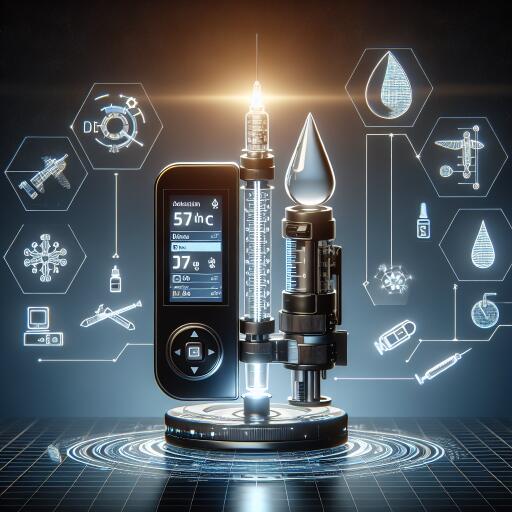Exploring the Frontiers of Automated Insulin Delivery Systems
In a groundbreaking thirteen-article supplement published by Diabetes Technology & Therapeutics (DTT), the spotlight shines brightly on the advancements and future prospects of Automated Insulin Delivery (AID) Systems. This collection delves into the technical nuances, real-world applications, and the remarkable journey of innovation within the realm of diabetes management.
Among the highlights is a detailed exploration of the MiniMed™ 780G system, equipped with Meal Detection™ technology. The collaborative effort of Benyamin Grosman, PhD, alongside his Medtronic algorithm team, and esteemed co-authors Ohad Cohen, MD, and Robert Vigersky, MD, provides an insightful “Peek Under the Hood”. This technological marvel showcases an algorithm designed to significantly streamline diabetes management, marking a pivotal moment in the evolution of AID systems.
James Thrasher, MD, presents compelling evidence on the early real-world performance of the MiniMed™ 780G in the United States. The findings, indicative of improved time-in-range and minimal time below range, mirror the success seen internationally. This is complemented by Pratik Choudhary, MBBS’s celebration of data derived from over 100,000 users across Europe, the Middle East, and Africa, reinforcing the system’s efficacy through tangible clinical evidence.
The supplement doesn’t shy away from addressing challenges and barriers in adopting AID systems. Diana Isaacs, PharmD, and her team emphasize the importance of removing obstacles and the evolving role of healthcare providers (HCP) in a landscape shaped by these innovative systems. The economic perspective is not overlooked, with Chantal Mathieu MD, PhD, and colleagues presenting a narrative review on the health economics of AID systems, advocating for the inclusion of “time in range” as a critical factor in diabetes modeling.
A multidisciplinary international collaboration showcases the safety of exercising with the MiniMed 780G system, underscoring the importance of adapting diabetes management to accommodate physical activity seamlessly. Similarly, Greg Forlenza, MD, and John Shin, PhD, review how the 780G system has been instrumental in reducing the diabetes management burden, offering a glimpse into a future where technology and well-being go hand in hand.
Further contributing to the supplement, Jennifer Sherr, MD, PhD, and Elizabeth Considine, BS analyze real-world evidence, confirming the efficacy of AID systems observed in pivotal trials. Robert Vigersky, MD, critically examines the limitations of Mean Absolute Relative Difference (MARD) in assessing continuous glucose monitoring accuracy, challenging preconceived notions within the field.
In a narrative that marries technology with practical application, Bruce Buckingham, MD, and Richard Bergenstal, MD, present a compelling case study. It focuses on minimizing the challenges of carbohydrate counting and meal announcements through innovative features like meal recognition and auto-correction doses.
Reflecting on a decade of progress, Satish Garg, MD, Editor-in-Chief of Diabetes Technology & Therapeutics and a respected figure from the University of Colorado Denver, Barbara Davis Center for Diabetes, emphasizes the transformative impact of AID systems. “Hybrid Closed-Loop Systems have significantly evolved…reducing diabetes burden,” he states, underscoring the enhanced glucose control and improved time in range beyond 70% facilitated by the current generation of AID systems such as the 780G.
This supplement not only highlights the monumental strides made in the field of diabetes management but also sets the stage for future innovations. The collaborative efforts of researchers, clinicians, and technologists herald a new era where automated insulin delivery systems elevate the standard of care, offering new hope and improved quality of life for individuals living with diabetes.
For more details on this supplement and to delve deeper into the technological advancements shaping the future of diabetes care, refer to the article “Development and Future of Automated Insulin Delivery (AID) Systems” in Diabetes Technology & Therapeutics.










